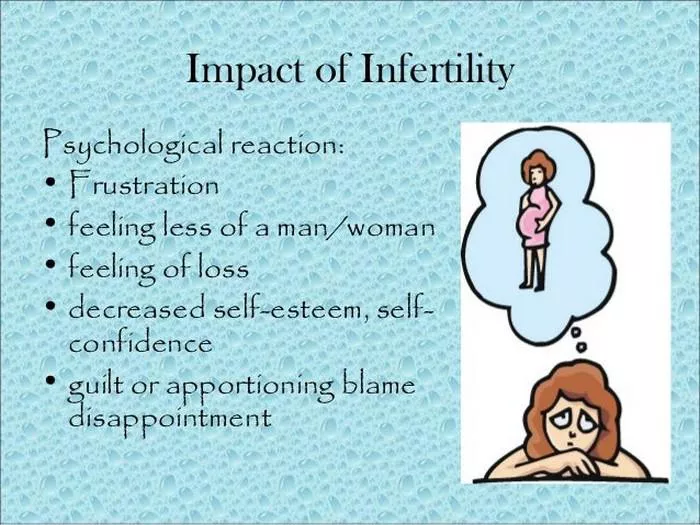Infertility can be a deeply distressing experience for individuals and couples who are hoping to conceive. While infertility can arise from a variety of factors, including genetic predispositions, hormonal imbalances, and lifestyle choices, there are steps individuals can take to help reduce their risk of experiencing fertility challenges. In this article, we’ll explore three proactive strategies to prevent infertility and promote reproductive health.
1. Prioritize Your Health: The Foundation of Fertility
Maintaining good overall health is essential for promoting reproductive health and fertility. Just as a sturdy foundation is essential for building a strong structure, prioritizing your health lays the groundwork for optimal reproductive function. Engage in regular physical activity, aiming for at least 30 minutes of moderate exercise most days of the week. Exercise helps regulate hormone levels, improve circulation, and support overall well-being, all of which are beneficial for fertility.
In addition to exercise, focus on nourishing your body with a balanced diet rich in essential nutrients. Just as a well-tended garden yields abundant harvests, fueling your body with nutrient-rich foods can support reproductive health. Aim to consume a variety of fruits, vegetables, whole grains, lean proteins, and healthy fats. These foods provide essential vitamins and minerals that play key roles in reproductive function, such as folate, zinc, vitamin D, and omega-3 fatty acids.
Lastly, prioritize adequate sleep to support hormonal balance and overall well-being. Just as a well-rested mind is better equipped to handle challenges, getting enough sleep helps regulate hormone levels, reduce stress, and support immune function. Aim for 7-9 hours of quality sleep per night, and establish a consistent sleep schedule to optimize your body’s natural rhythms.
2. Practice Safe Sex: Protecting Reproductive Health
Practicing safe sex is crucial for protecting reproductive health and preventing sexually transmitted infections (STIs) that can lead to infertility. Just as a vigilant guard protects a fortress from invaders, practicing safe sex with condoms can help reduce the risk of STIs. Use condoms consistently and correctly during sexual activity, and consider discussing your sexual health history with your partner to ensure open communication and mutual understanding.
Regular STI testing is also important for maintaining reproductive health. Just as routine maintenance keeps a machine running smoothly, regular STI testing can help detect infections early and prevent long-term complications. Schedule regular STI screenings with your healthcare provider, especially if you have multiple sexual partners or engage in high-risk sexual behaviors. Prompt treatment of STIs can help prevent damage to reproductive organs and preserve fertility.
3. Manage Stress: Cultivating Emotional Well-Being
Chronic stress can have a profound impact on reproductive health, affecting hormone levels, menstrual function, and sperm quality. Just as a stormy sea can toss a ship off course, chronic stress can disrupt the delicate balance of hormones and neurotransmitters involved in reproductive function. Incorporating stress-reduction techniques into your daily routine can help promote emotional well-being and mitigate the negative effects of stress on fertility.
Practice mindfulness, meditation, yoga, or deep breathing exercises to help reduce stress and promote relaxation. Just as a calm lake reflects the beauty of its surroundings, cultivating inner peace and tranquility can have ripple effects on your overall well-being. Seek support from mental health professionals or support groups if you’re feeling overwhelmed or struggling to cope with stress. Just as a compass points the way through unknown terrain, seeking support can provide valuable guidance and resources for navigating life’s challenges.
Conclusion:
In conclusion, while infertility can be a challenging and sometimes unpredictable journey, there are proactive steps individuals can take to help prevent fertility challenges and promote reproductive health. By prioritizing overall health, practicing safe sex, and managing stress levels, individuals can empower themselves to take control of their reproductive futures and increase their chances of conceiving when the time is right. While there are no guarantees when it comes to fertility, adopting healthy habits and seeking support when needed can lay the groundwork for a brighter and more fertile future.
[inline_related_posts title=”You Might Be Interest[inline_related_posts title=”You Might Be Interested In” title_align=”left” style=”list” number=”6″ align=”none” ids=”1716,1726″ by=”categories” orderby=”rand” order=”DESC” hide_thumb=”no” thumb_right=”no” views=”no” date=”yes” grid_columns=”2″ post_type=”” tax=””]ed In” title_align=”left” style=”list” number=”6″ align=”none” ids=”1723,1726″ by=”categories” orderby=”rand” order=”DESC” hide_thumb=”no” thumb_right=”no” views=”no” date=”yes” grid_columns=”2″ post_type=”” tax=””]

























